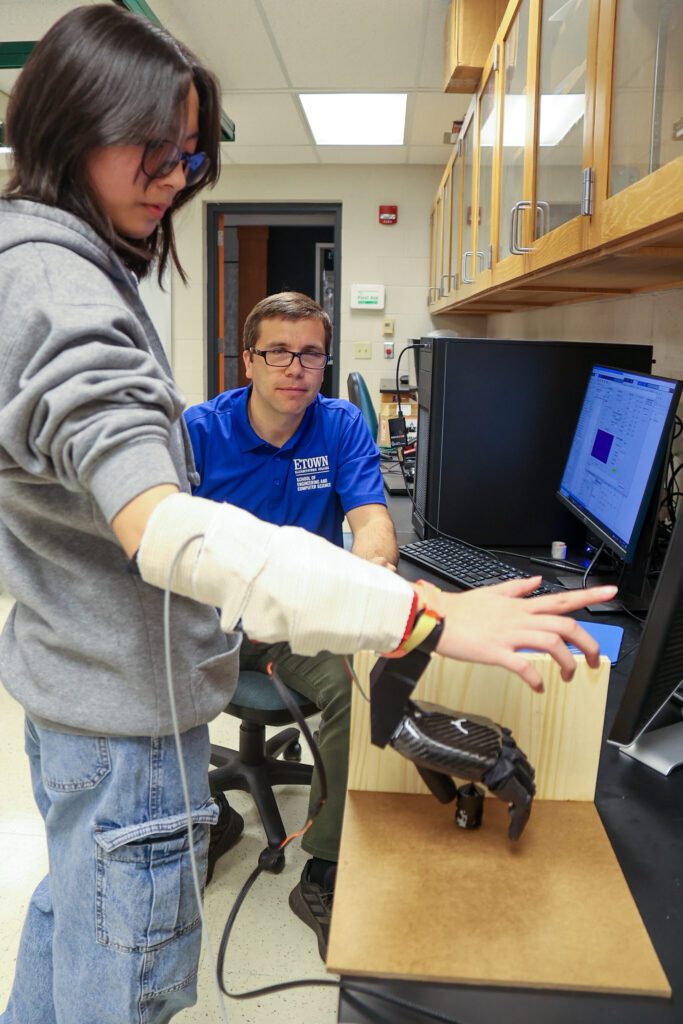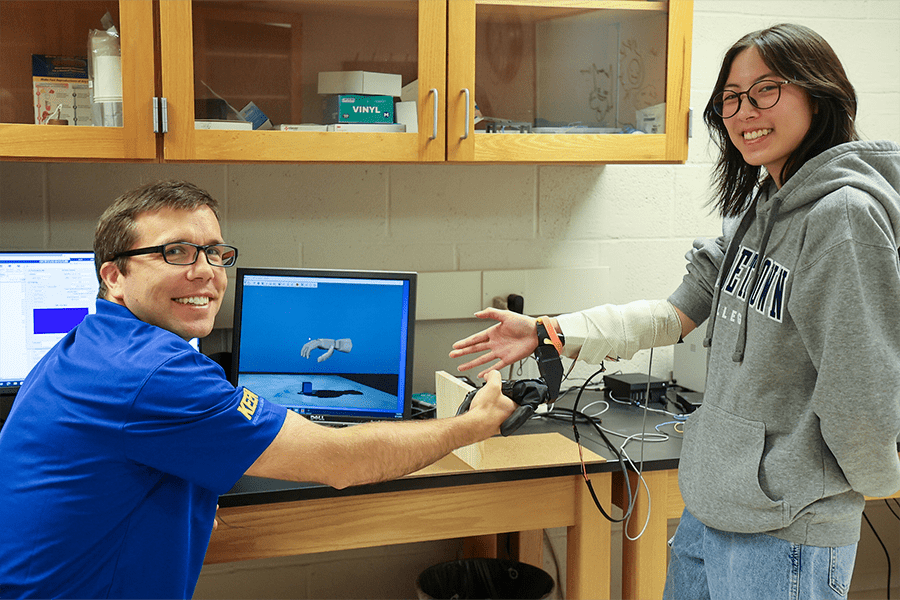Elizabethtown College Engineering major Caroline Casumpang ’26 is spending her summer on campus researching how effective electrocutaneous stimulation is in helping prosthetic users determine the appropriate amount of force needed to pick up objects without breaking them as part of the Summer Creative Arts and Research Program (SCARP).
Casumpang has been working alongside faculty mentor and Assistant Professor of Engineering & Physics Mark Brinton in a continuation of a 2023 SCARP project, running tests with the ultimate goal of helping to achieve a natural feeling for prosthetics by using electric stimulation.
Title of Research
Minimizing the Effects of Stimulation Artifact in Bionic Hands Equipped with Biomimetic Sensory Feedback
Student Researcher
Caroline Casumpang ’26 (Engineering major)
Faculty Mentor
Dr. Mark Brinton, Assistant Professor of Engineering & Physics
What are you researching?
Casumpang: This research studies the effectiveness of electrocutaneous stimulation in enhancing the control of prosthetic hands, particularly in grasping fragile objects without causing damage. Electrocutaneous stimulation generates electrical signals that can interfere with the sensitive muscle signals used to operate robotic hands. We are exploring how well machine learning algorithms can learn to filter out these interfering signals. The performance of these algorithms will be tested through experiments involving the robotic hand’s ability to handle fragile objects. Additionally, future experiments will examine how mimicking the signaling mechanisms of mechanical receptors in the human body can improve the ability to perform complex tasks, such as manipulating delicate items.
Why did you choose this topic?
Casumpang: I chose this topic because I’m interested in robotics and prosthetics. These fields are at the cutting edge of technology and medicine, and they have the power to improve the lives of people with disabilities. Exploring this topic lets me dive into the exciting intersection of engineering, healthcare, and human potential.
What was the most interesting aspect of this research?
Casumpang: The most interesting aspect of this research is the opportunity to contribute to creating more advanced prostheses for people to use. This aspect not only involves hands-on experience and learning about the robotic hand’s configuration but also directly impacts real-world applications and improves the quality of life for individuals who rely on prosthetic technology.
Talk about working with your mentor. How have they helped you throughout this experience?
Casumpang: Working with my mentor Dr. Brinton has been incredibly beneficial throughout this experience. He provided me with an environment where I could experiment with the hand configurations, allowing me to learn at my own pace and gain a better understanding of the project overall. He encourages independent work while being readily available to guide me whenever I need help. This balance of autonomy and support has been instrumental in my growth and understanding of the project.
Hear from the faculty mentor — Mark Brinton
“It is a real pleasure to work with Caroline. She has grown so much as an independent researcher over the past year. And this summer she is making great progress toward our research objectives. She works independently and effectively, and she loves being given a problem to solve and then diving right in to solve it. I’ve been able to assign difficult tasks for her to complete and she goes about addressing them in a methodical way. I’m excited to see what she will accomplish as a future engineer.”

